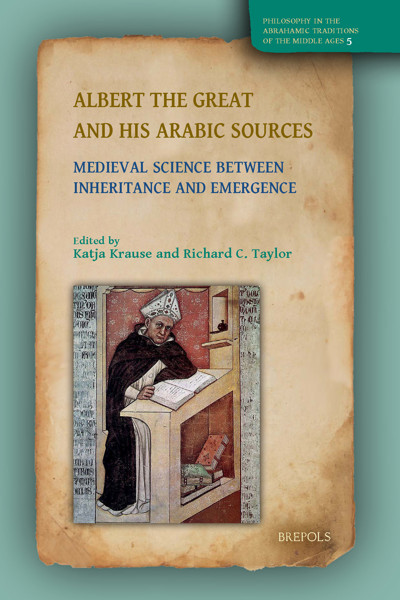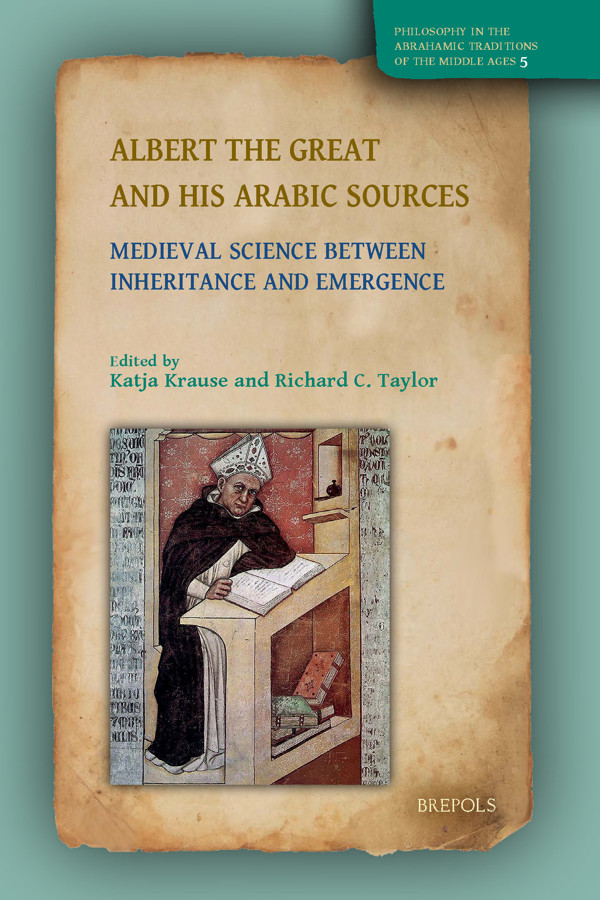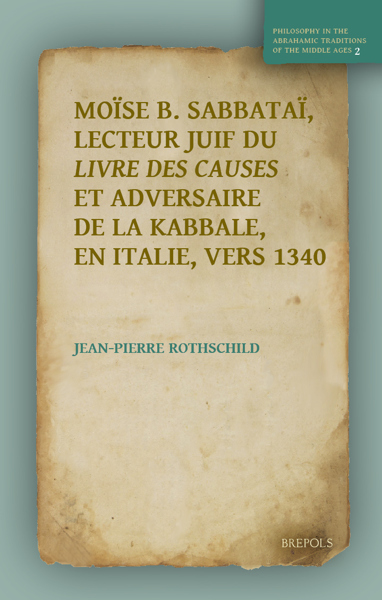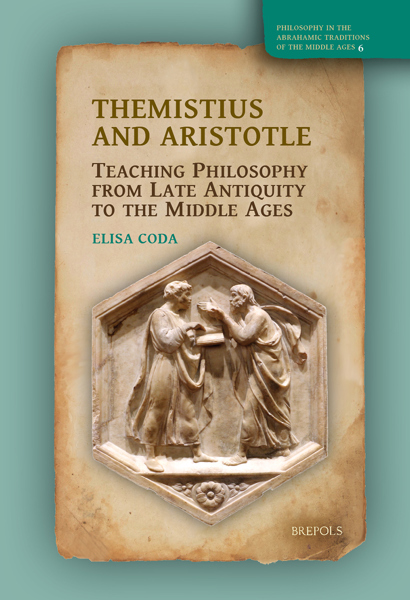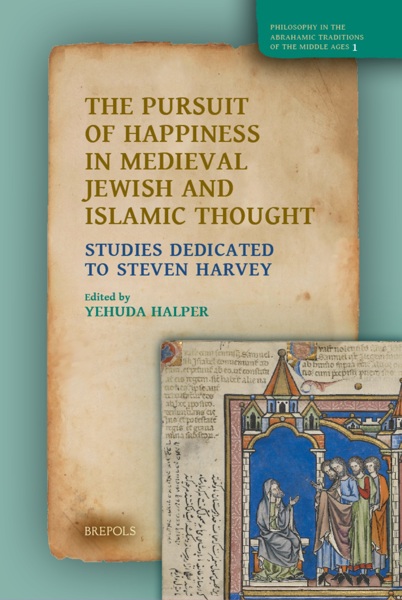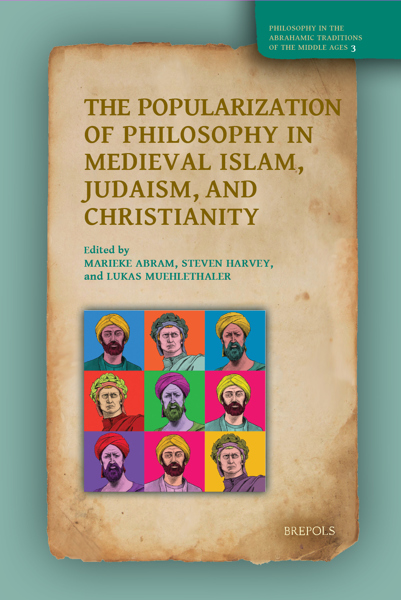
Albert the Great and his Arabic Sources
Medieval Science between Inheritance and Emergence
Katja Krause, Richard C. Taylor (eds)
- Pages: 473 p.
- Size:156 x 234 mm
- Illustrations:2 tables b/w.
- Language(s):English
- Publication Year:2024
- € 130,00 EXCL. VAT RETAIL PRICE
- ISBN: 978-2-503-60937-9
- Hardback
- Available
- ISBN: 978-2-503-60938-6
- E-book
- Available
Explores the crucial role of Arabic sources in shaping Albert the Great’s work and their impact on his larger scientific programme and thus on the thirteenth-century Latin world.
Katja Krause is Professor of the History of Science at the Technical University Berlin and leads a research group at the Max Planck Institute for the History of Science.
Richard C. Taylor is professor of philosophy at Marquette University, annual visiting professor at the KU Leuven, and director of the ‘Aquinas and "the Arabs" International Working Group’.
Albert the Great created a new programme of science in the thirteenth-century Latin world by extensively commenting upon Aristotle’s philosophical corpus and supplementing that corpus with works of his own wherever he saw gaps. What were the preconditions for the emergence of such a comprehensively new scientific agenda and its centuries of success at the University of Paris and Dominican study houses across Europe? One answer is found in the rich Arabic sources that Albert had at his disposal in Latin translation, including Alfarabi, Avicenna, and Averroes, as well as Isaac Israeli, Maimonides, and more.
Never before in the history of Albert scholarship has there been a collected volume that examines this inheritance from the Arabic-speaking lands in its role as a major condition for the emergence of Albert’s scientific programme. In the present volume, twelve leading scholars in the field offer studies that range from Albert’s early theological works to his late philosophical writings. The volume focuses on the teachings that Albert actively inherited from the Arabic sources, the ways in which he creatively implemented those teachings into his scientific corpus, and the effects that these implementations had on his own programmatic take on scientia.
Chapter 1. Introduction: Albert’s Philosophical scientia: Origins, Geneses, Emergences
KATJA KRAUSE AND RICHARD C. TAYLOR
Chapter 2. Albert the Great’s Definition of the Good: Its Arabic Origins and Its Latin Transformations
JORGE USCATESCU BARRÓN
Chapter 3. Albert the Great and Two Momentous Early Misconstruals in the Interpretation of Averroes
RICHARD C. TAYLOR
Chapter 4. Albert’s Invocations of Averroes in His Account in Super Ethica of the Relation between Philosophical and Theological Ethics
MARTIN J. TRACEY
Chapter 5. Albert and ‘the Arabs’: On the Eternity of Movement
JOSEP PUIG MONTADA
Chapter 6. Albert the Great’s Treatment of Avicenna and Averroes on a Universal Flood and the Regeneration of Species
IRVEN M. RESNICK
Chapter 7. Against Averroes’s Naturalism: The Generation of Material Substances in Albert the Great’s De generatione et corruptione and Meteorologica IV
ADAM TAKAHASHI
Chapter 8. Albert the Great’s Use of Averroes in His Digressions on Human Intellectual Knowledge (De anima III.3.8–11)
LUIS XAVIER LÓPEZ-FARJEAT
Chapter 9. Is There an Intellectual Memory in the Individual Human Soul? Albert the Great between Avicenna and Aquinas
JÖRN MÜLLER
Chapter 10. What Makes a Genius? Albert the Great on the Roots of Scientific Aptitude
HENRYK ANZULEWICZ
Chapter 11. Source Mining: Arabic Natural Philosophy and experientia in Albert the Great’s Scientific Practices
KATJA KRAUSE
Chapter 12. Inheritance and Emergence of Transcendentals: Albert the Great between Avicenna and Averroes on First Universals
AMOS BERTOLACCI
Chapter 13. The Emanation Scheme of Albert the Great and the Questions of Divine Free Will and Mediated Creation
DAVID TWETTEN
Index of Subjects and Names
Index of Books, Ancient and Premodern
